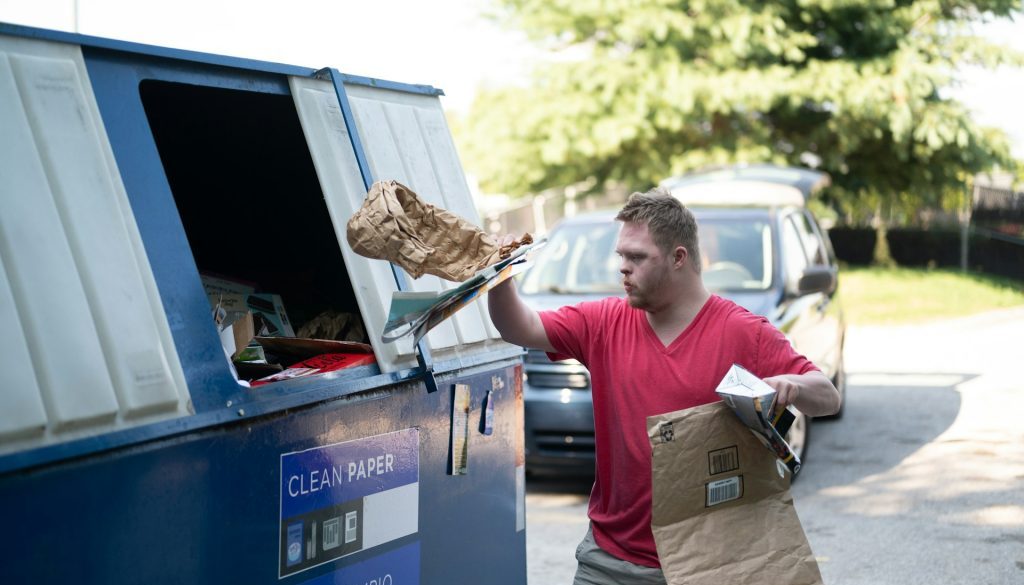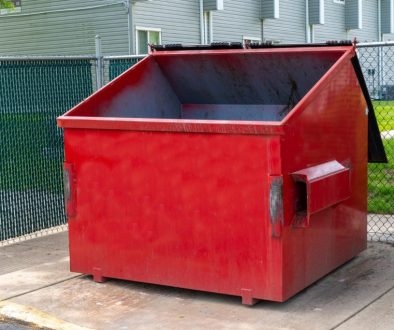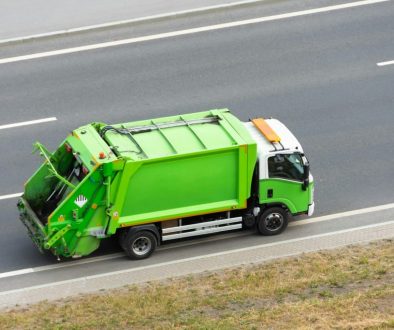Reducing household rubbish is a great way to help the environment and keep your home tidy. It might seem daunting at first, but with a few simple changes, you can make a big difference. Implementing effective waste reduction strategies can also save you money and time in the long run.
One of the easiest ways to start is by setting up a home recycling programme. Sorting out recyclables from your regular waste can significantly reduce the amount of rubbish going to landfill. You can also team up with family members to make recycling a household routine.
Another impactful step is cutting down on single-use plastics. These plastics often end up in oceans and can harm wildlife. By using reusable bags, bottles, and containers, you can help reduce plastic waste. Additionally, composting organic waste such as food scraps and garden clippings can turn what would be rubbish into valuable compost for your plants.
Lastly, buying in bulk and avoiding products with excess packaging can further minimise household rubbish. Choosing products with minimal or recyclable packaging supports sustainable business practices and encourages producers to make more environmentally friendly choices.
These steps are simple to follow and can lead to significant reduction in household rubbish, benefiting both your home and the environment.
Implementing a Home Recycling Programme
Starting a home recycling programme is a great step towards reducing rubbish. The first thing to do is set up a designated area in your home for sorting recyclables. Pick a spot in the kitchen or utility room where you can place separate bins for paper, plastic, glass, and metal. Make sure each bin is clearly labelled so everyone knows what goes where.
Next, educate yourself and your family about what can be recycled. Many local councils provide detailed lists of recyclable materials. Items like paper, cardboard, certain plastics, glass bottles, and aluminium cans are usually recyclable. However, items contaminated with food or certain types of plastics may not be accepted. Knowing this helps avoid mistakes and improves the efficiency of your recycling efforts.
To make recycling a habit, consider setting a schedule for taking out the recycling. You could do this weekly or bi-weekly, depending on how much waste your household produces. Taking a few minutes each day to rinse and sort items can make the process smoother. Engaging your family in the routine can also make it more effective and enjoyable.
Reducing Single-Use Plastics
Reducing single-use plastics is another crucial step in cutting down household rubbish. These plastics are often used once and then thrown away, creating a significant amount of waste. To tackle this, start by identifying common single-use plastics in your home, like water bottles, plastic bags, straws, and packaging.
Replace single-use items with reusable alternatives. For example, carry a reusable water bottle and shopping bags with you. Opt for glass or stainless-steel containers for storing food instead of plastic wrap or bags. Additionally, say no to plastic straws or utensils when eating out, and bring your own reusable ones if needed.
Shopping habits also play a big role in reducing plastic waste. Choose products with minimal packaging or those packaged in recyclable materials. Buy fresh produce that is not wrapped in plastic and consider shopping at farmers’ markets where you can bring your own bags.
By making these small changes, you can significantly reduce the amount of single-use plastics in your home. Not only does this cut down on rubbish, but it also helps protect wildlife and the environment from plastic pollution.
Composting Organic Waste
Composting organic waste is an excellent way to reduce household rubbish while creating a valuable resource for your garden. Many household waste items, like fruit and vegetable scraps, coffee grounds, and eggshells, can be composted. Even garden waste, such as grass clippings and leaves, can be added to your compost pile.
To start composting, choose a suitable spot in your garden for a compost bin or heap. It’s best to place it on bare soil to allow worms and other beneficial organisms to access the compost, aiding the breakdown process. Begin by adding layers of green waste (like food scraps and fresh grass clippings) and brown waste (like dried leaves, cardboard, and paper).
It’s important to regularly turn the compost to aerate it and speed up decomposition. A simple garden fork can be used for this task. Keep the compost moist, but not too wet, to ensure a healthy breakdown process. Over time, the organic waste will turn into rich compost that you can use to nourish your garden plants.
Understanding what not to compost is also crucial. Avoid adding meat, dairy, and oily foods as they can attract pests and create unpleasant odours. Following these simple steps can turn your organic waste into a useful product for your garden, reducing the amount of rubbish you send to landfill.
Buying in Bulk and Avoiding Excess Packaging
Buying in bulk and avoiding excess packaging are effective ways to cut down on household rubbish. When you purchase items in larger quantities, you reduce the overall amount of packaging waste. This approach is not only eco-friendly but can also save you money over time.
Here are some tips for buying in bulk and avoiding excess packaging:
1. Shop at Bulk Stores: Many stores offer bulk buying options where you can fill your own containers with items like grains, nuts, and dried fruits. This helps reduce packaging waste.
2. Choose Products with Minimal Packaging: Opt for products that use less packaging or packaging that is recyclable. Look for items with simple, eco-friendly packaging.
3. Bring Your Own Bags and Containers: When shopping, always carry reusable bags and containers. This reduces the need for single-use plastic bags and packaging.
4. Buy Refillables: Some products, like cleaning supplies and toiletries, often come in refillable containers. Using these can significantly cut down on waste.
5. Avoid Individually Wrapped Items: Choose multi-packs or larger quantities to avoid the extra waste that comes with individually wrapped items.
By being mindful of your shopping habits and making small changes, you can significantly reduce the amount of rubbish your household produces. This not only benefits the environment but also encourages more sustainable living practices.
Conclusion
Cutting down on household rubbish might seem overwhelming at first, but by implementing a few simple strategies, you can make a significant impact. From setting up a home recycling programme and reducing single-use plastics to composting organic waste and being mindful of packaging, each step contributes to a cleaner, greener home. These changes are easy to adopt and can lead to a notable reduction in rubbish, benefiting both your household and the environment.
Taking these steps not only helps the planet but also instils good habits that can influence others around you. By making these small but effective changes, you play a role in promoting sustainability and reducing waste.
If you need help managing your waste, contact Enviro Skip Hire today. Our expert team can assist you with all your waste disposal needs, ensuring a cleaner and more sustainable environment for everyone. Call us now to find out more about skip hire in Cheshire.




